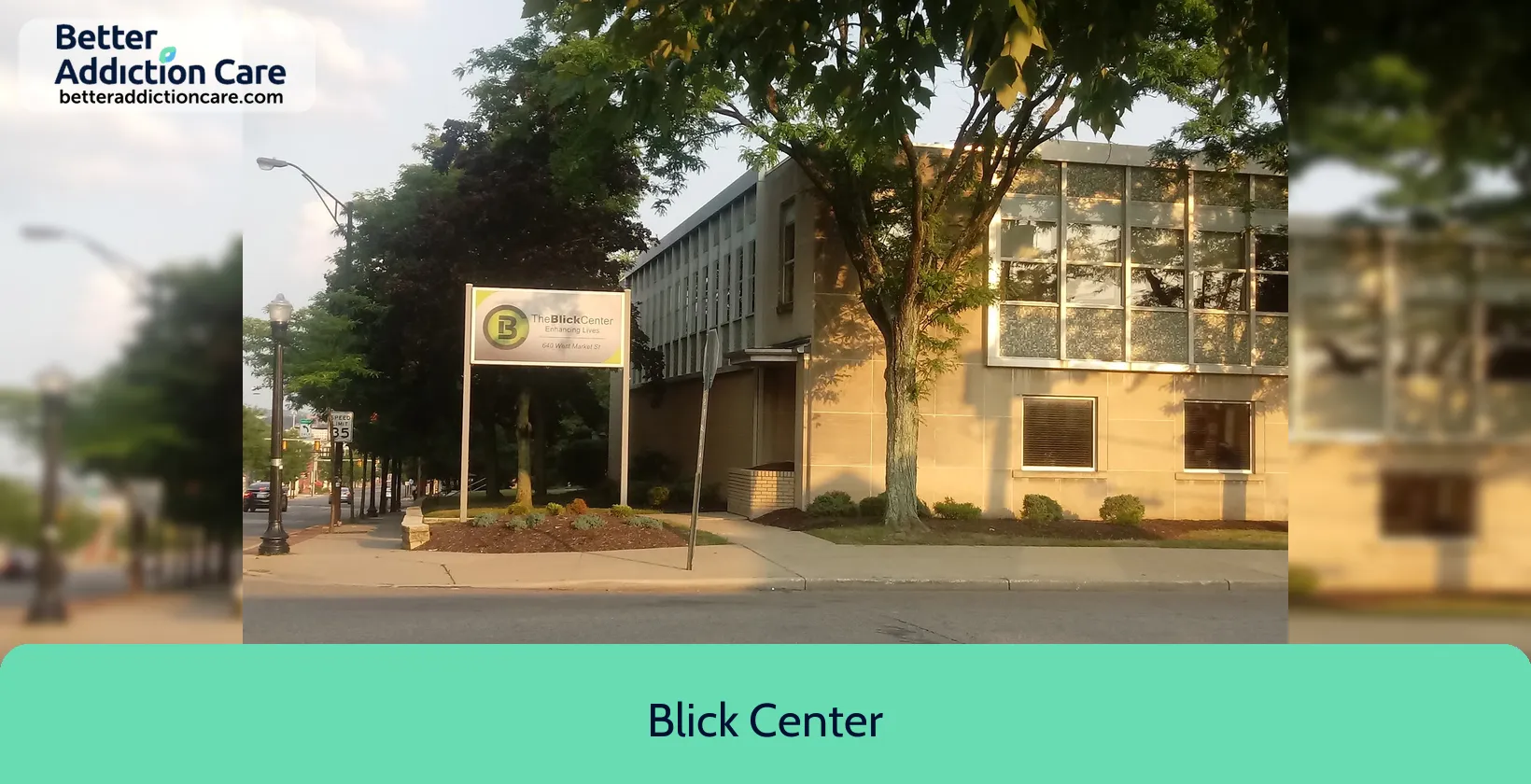Blick Center
Overview
Blick Center is a mental health treatment center for people seeking treatment near Summit County. As part of their treatment modalities for recovery, Blick Center provides couples/family therapy, group counseling, and cognitive behavioral therapy during treatment. Blick Center is located in Akron, Ohio, accepting cash or self-payment for treatment.
Blick Center at a Glance
Payment Options
- Cash or self-payment
- Medicaid
- Medicare
- State-financed health insurance plan other than Medicaid
- Private health insurance
Assessments
- Screening for tobacco use
- Comprehensive mental health assessment
- Comprehensive substance use assessment
Age Groups
- Seniors or older adults
- Children/adolescents
- Young adults
- Adults
- Seniors
Ancillary Services
- Case management service
- Chronic disease/illness management
- Court-ordered outpatient treatment
- Family psychoeducation
- Integrated primary care services
Highlights About Blick Center
6.74/10
With an overall rating of 6.74/10, this facility has the following balanced range of services. Alcohol Rehabilitation: 8.00/10, Treatment Options: 6.97/10, Drug Rehab and Detox: 6.00/10, Insurance and Payments: 6.00/10.-
Alcohol Rehabilitation 8.00
-
Treatment Options 6.97
-
Drug Rehab and Detox 6.00
-
Insurance and Payments 6.00
Treatment At Blick Center
Treatment Conditions
- Alcoholism
- Mental health treatment
- Substance use treatment
- Co-occurring Disorders
Care Levels
- Partial Hospitalization Program
- Outpatient
Treatment Modalities
- Couples/family therapy
- Group counseling
- Cognitive behavioral therapy
- Dialectical behavior therapy
- Integrated Mental and Substance Use Disorder treatment
Ancillary Services
Languages
- Sign language services for the deaf and hard of hearing
Special Programs
- Clients with co-occurring mental and substance use disorders
- Persons 18 and older with serious mental illness (SMI)
Get Help Now
Common Questions About Blick Center
Contact Information
Other Facilities in Akron

6.59

7.13

6.96

7.11

7.06

6.77

7.09

6.74
DISCLAIMER: The facility name, logo and brand are the property and registered trademarks of Akron Urban Minority - Alcohol Drug Abuse Outrch Program, and are being used for identification and informational purposes only. Use of these names, logos and brands shall not imply endorsement. BetterAddictionCare.com is not affiliated with or sponsored by Akron Urban Minority - Alcohol Drug Abuse Outrch Program.

